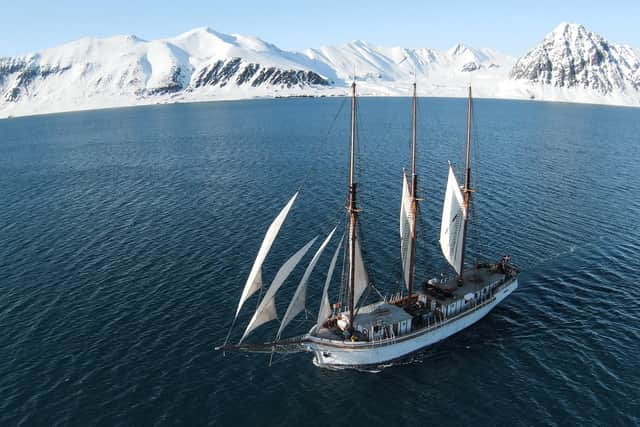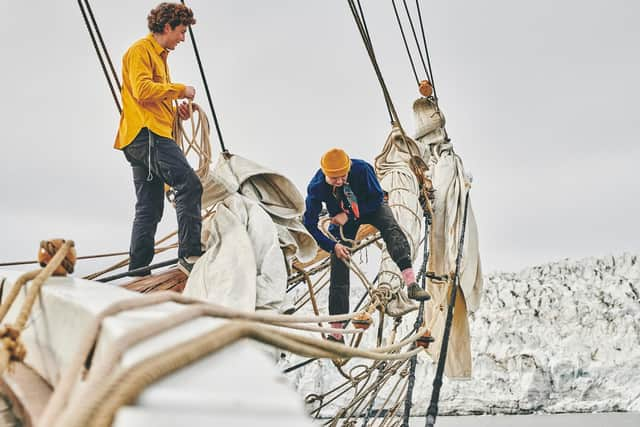Arctic ocean voyage setting sail to uncover climate change impacts on marine environment
An 18-strong team made up of academics, citizen scientists and crew will be aboard the ship, which is due to depart from Svalbard in Norway on Friday.
The ten-year project, Ocean Warrior, is the brainchild of internationally renowned explorer Jim McNeill, who has been running scientific expeditions to the Arctic for more than 20 years and has acted as a consultant for natural history programmes such as the BBC’s Frozen Planet.
Advertisement
Hide AdAdvertisement
Hide AdThe plan is to travel to seldom-visited areas of the Arctic ocean each year between June and October, with the goal of covering 10,000 nautical miles annually. The researchers aim to install and test scientific and technological equipment such as weather stations and underwater monitoring systems.
Additionally, an online dashboard will be created to share findings.
Data on a range of key ‘indicators’ – such as water quality, plankton abundance, genetic material, salinity and ocean acidity – will be collected.
The information gathered will help provide new insights into the pace of changes taking place as a result of climate change, their impacts on marine eco-systems and what the future may hold for the Arctic region and the wildlife, populations and economies which depend upon it.


“Our quest is to help scientists put a better, more immediate finger on the pulse of our planet by exploring the extreme environments on earth in the greatest detail,” Mr McNeill said.
“By measuring, benchmarking and monitoring over a ten-year period we should be able to detect changes – both good and bad.
“Through the citizen science aspect of the explorations, we’re also enabling people from different walks of life to come and be part of something that will generate highly important scientific research.”
The project is being supported by the UK’s Plymouth Marine Laboratory.


Advertisement
Hide AdAdvertisement
Hide AdProf Icarus Allen, chief executive of the research institute, will be part of the team for the first leg of the expedition.
He said: “To support a sustainable future for the ocean we need to be in a position to monitor the changes which are happening. Ocean Warrior will be a valuable addition to this pursuit.”
Comments
Want to join the conversation? Please or to comment on this article.